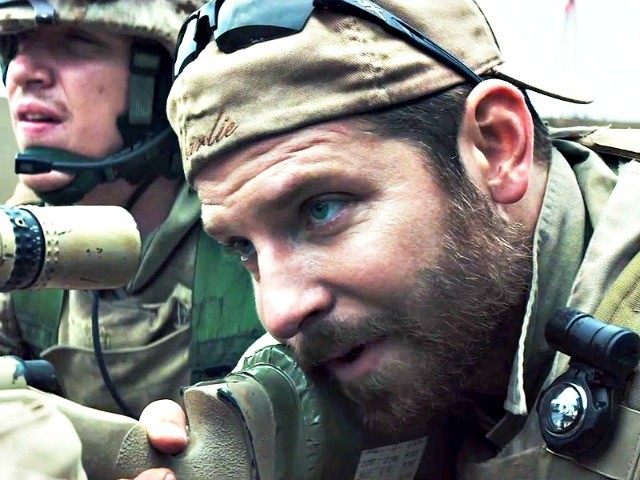Salon’s Andrew O’Hehir has seen “American Sniper” twice and is now pretending he has cracked its cultural and political code. Naturally, what he discovered perfectly fits his own leftist leanings. And that must feel pretty good. After all, director Clint Eastwood’s masterpiece is breaking more than a half-dozen box office records. That must mean America’s love for the cultural sensation equates America agreeing with O’Hehir’s noxious political beliefs.
There is just one problem: In his analysis O’Hehir leaves out one very important fact — the actual moment when the audience is told what “American Sniper” is about. O’Hehir’s analysis is an audacious act of lying through omission.
To leave this particular jaw-dropping revelation out of a piece of analysis on “American Sniper” is like analyzing “The Wizard of Oz” without including the fact that the Wizard is a fraud or that Dorothy was dreaming.
O’Hehir is completely off his rocker.
After falsely defaming the subject of “American Sniper,” war hero Chris Kyle, as a “racist and xenophobe,” O’Hehir closes with this epic piece of anti-science wishful thinking:
After sitting through the film twice, I’m more convinced than ever that there’s a level of sardonic commentary at work that is sometimes subtle and sometimes pretty damn obvious. Pay attention to Cooper’s increasingly congested body language, the posture of a man stricken with unmanageable psychic distress. Pay attention to the use of the phrase “mission accomplished” late in the film, or the stateside scene in which Kyle runs into a Marine whose life he saved in Fallujah and can’t even make eye contact with the guy. This is a portrait of an American who thought he knew what he stood for and what his country stood for and never believed he needed to ask questions about that. He drove himself to kill and kill and kill based on that misguided ideological certainty – that brainwashing, though I’m sure Clint Eastwood would never use that word – and then paid the price for it. So did we all, and the reception of this film suggests that the payments keep on coming due.
This isn’t even intelligent self-deception. It’s breathtakingly obtuse. The only possible excuse is if O’Hehir wants to admit that both times he walked out of theater before the movie was over.
Bottom line: O’Hehir is choosing to fabricate an answer to the question of what caused Kyle’s psychic distress, even though Eastwood and the movie loudly and declaratively answer that question.
Here’s what O’Hehir chose not to tell his readers. This is from my Friday review, and it is not guesswork, conjecture or speculation. This is exactly what actually happens in the actual movie:
And now I’m going to tell you why those critics claiming “American Sniper” is really a subversive left-wing movie are deluding themselves with anti-science gibberish….
***BIG BUT NECESSARY SPOILER***
The Big Emotional Question that drives much of “American Sniper” is whether or not, after it’s all over, Kyle still believes in who he is and what he’s done. The film’s best moment comes when that question is answered, when we learn just what is that is tearing Kyle up inside. “I will stand before my Creator and justify every shot,” he tells a military therapist.
You see, it’s not Iraq or Bush or the military or the mission or even those 160 confirmed kills. What’s eating Kyle alive is that he didn’t do more — didn’t save more United States Marines.
Neither the movie nor Eastwood argue this point. The point is objectively proven true because it’s “saving” his “brothers” that eventually saves Kyle — his work with troubled veterans loosens the torturous knot and at long last delivers him home. The point is driven home even further when we watch Kyle teach his young son to hunt.
This is not a small thing.
In fact, it is everything.
That is the moment that tell us what the movie is really “about.”
And this is a movie about a protagonist whose only regret is that he didn’t kill more of those evil fucking savages.
Eastwood doesn’t hide the fact that war is hell, but he also doesn’t hide the fact that an imperfect but selfless American hero believed the cause righteous.
Who you gunna believe, a Salon writer or your lying eyes?
John Nolte on Twitter @NolteNC

COMMENTS
Please let us know if you're having issues with commenting.